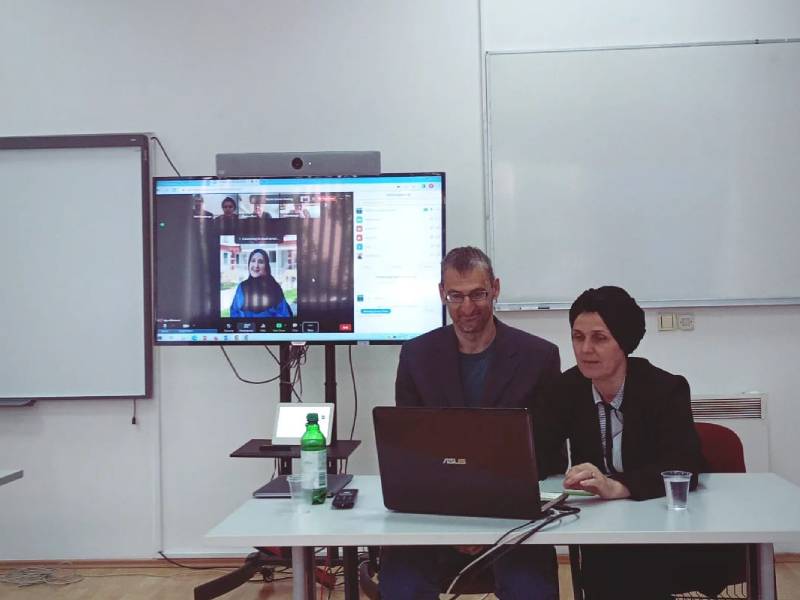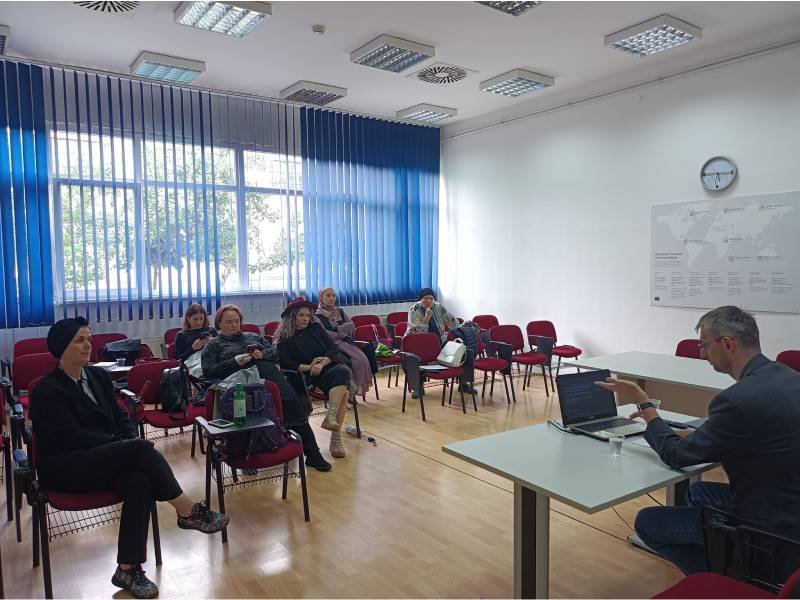As part of the project “Introducing Gender-Conscious Policies in Higher Education – UNIGEM,” the TPO Foundation and the University Gender Resource Center of the University of Sarajevo (UNIGeRC) hosted Professor Ph.D. from Griffith University, Australia.
At the Center for Interdisciplinary Studies, “Prof. Dr. Zdravko Grebo” of the University of Sarajevo, and via the Zoom platform, Dr. Đuderija delivered a lecture titled “Female Sexuality, Gender Segregation, and Veiling in Islam.” Dr. Đuderija began by presenting the concept of the ideal Muslim woman as depicted in two works: Baljić, H. (2012) “Bosnian Customs in the Light of the Sunnah” (El-Kelimeh, Novi Pazar) and Hangi, A. (1907) “Life and Customs of Muslims in Bosnia and Herzegovina” (Sarajevo, Kajon).
The portrayal of the religiously ideal Bosnian Muslim woman in these sources strongly reflects the mainstream Sunni ideal, which is based on the following beliefs:
1. Women embody aggressive, socio-morally corrupt sexuality.
2. Adherence to strict segregation and concealment is essential.
3. Husbands hold authority and control over their wives and children.
Analyzing Hangi (2010, p. 281), Dr. Đuderija noted that it is customary for Bosniak women to socialize and converse in entirely gender-segregated spaces. Hangi’s depiction of home design, with separate rooms for men (ahar) and women (harem), also supports this segregation.
Women are also discouraged from attending the mosque (2012, p. 40) or participating in the funerals of their relatives, including their own husbands (2012, p. 368), as this could cause fitna. Additionally, young married women with small children are prohibited from going outside after sunset.
Dr. Đuderija concluded that Islamic norms are very traditional, with some ontological beliefs emphasizing that men are primary and women are secondary. Female sexuality is often viewed as destructive or diabolical, whereas masculinity and male sexuality are associated with knowledge, logic, and religious insight. Traditional Islam links obedience to God with obedience to one’s husband. It is crucial to approach various religious interpretations critically, as many have been created from male perspectives, leading to gender discrimination and placing women in an unfavorable position.
The lecture by Dr. Đuderija is based on the article available at: [Brill Article](https://brill.com/view/journals/haww/aop/article-10.1163-15692086-12341395/article-10.1163-15692086-12341395.xml).





